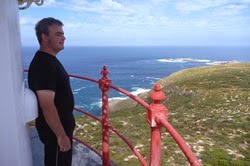Thursday, May 20, 2021
Jules and Jim by Henri-Pierre Roche (1953)
I've come to this not having seen Truffaut's film, so I'm reacting to the novel as its original self, unflavoured. The thing which most strikes me is that it's a fretwork novel. There is as much clean air as there is content. Strips of text negotiate the plot, give us in short stabs the movement of the piece. And the text is partly highly metaphoric, so the shards we have are curved away in a good few instances from the prosaic. The other parts are very direct and replete with flat statement, making altogether a curious mixture. Looking into Roché's biography brings the knowledge that he was a major player in Dada and the modernist movement - focus starts to come. The story itself is of the bohemian life from Edwardian times to the 1920s. Two young friends, one a Parisian, one seemingly a German (no idea where Truffaut got Jules' Austrianness from, if reports are right) start out on a literary life in Paris. They are womanisers in what would I guess be called the higher-minded sense: it's not just about animal attainment, it's about adventure and discovery, and appreciation of personalities as well as persons. These women all have distinct temperaments, and the power relationships are very minutely discussed in each concatenation; dominations, laxnesses, particular wants coming from either the young friends or the females involved. One odd thing is the mix and match of names and nationalities: Jules, with a name of French origin, is from Germany; Jim, English name, but from France; Odile, French name, from Scandinavia, and so on, right through this piece, and with what seems an intentional obscurity in referring to places of origin, with references to "visiting his country", "returning to her country" and the like. It's almost miasmatic, meant as a blurring, presumably to keep the psychology, rather than 'unnecessary' facts, to the fore. The early part is strangely exhilarating, its bare frets lending a contrary satisfaction. Then Kate arrives on the scene, as the female interlocutor par excellence. She's also German, and a firebrand, dominating the scene from her first entrance. Blonde, full-figured tending to plumpness, northern European in colouring - not a lot like Jeanne Moreau, let's just quietly say. She's fiercely anti-conventional, only interested in the passionate life. She ends up marrying Jules, gets bored with his quieter and more retiring personality. He and Jim have complete openness between them, and a huge amount of intimate give and take, so when Kate decides it's Jim she wants, Jules is happy to acquiesce, because he wants both of them to be happy. Jim is caught up by Kate, and fully enters the raging swirl of her forward thrust. She and Jules divorce with the idea that a child of Jim and Kate will need to have Jim's surname, and won't unless they can marry. An interesting note here of how the conventions of their time waylaid the arcane orchestrations of free spirits. The child doesn't come, as their relationship goes through the powering ups and downs of the usual jealousies, flare-ups, sanctified reunions and desperate reconfigurations that typify all of Kate's mercurial life. It's also a progress, so notions are constantly cumulating about what things mean, in the light of how things are, emotionally and by extension physically. All sorts of other erotic partners are in the mix for both of them, in a way that is about freedom to discover rather than basic carnality, though forms of revenge and retribution have a part to play. They end up parting, and Kate teams up again with Jules, but it's not that simple, loyalties and comforts tending with old jealousies, and remakings and recastings always in the offing. Finally it gets to an insurmountable stage, with Kate's rage permanently engaged, her insistence on having the last answer coming in a final irretrievable act. The thing that niggles about the whole section with Kate, which is most of this book, is what I would call the hyper-romanticisation of passion. If, as is reported, it's quite autobiographical, and not really fantastically intended, then - wow, these people would be tiresome. So self-involved, and into 'living out loud' in a strongly destructive way. When it comes down to "well, I show how much I love you by killing you", or "I won't let you love anyone else and so I'll kill you", "your life is on the line in my scheme of revenge", the prescription's there for all to see. Is that superpassion of the nature of an eternal verity, as appears to be Roché's formulation here? I can't but think that a lot of partner-killers in our down-home miserable materiality would be delighted that their congealed notions are so seconded in art. So, not just tiresome, but dangerous, in the way of many like tales. But dangerous art can radiate a good defiance - no question about it. I don't think this quite achieves that, is all. More about an unhealthy obsessiveness than a true, good danger.
Tuesday, May 18, 2021
Commonplace Book
'...It often happens that in situations of unrestraint, where there is no thought of the eye of criticism, real feeling glides into a mode of manifestation not easily distinguishable from rodomontade. A veneer of affectation overlies a bulk of truth, with the evil consequence, if perceived, that the substance is estimated by the superficies, and the whole rejected.'
from The Woodlanders by Thomas Hardy (Chapter 18)
Subscribe to:
Posts (Atom)
